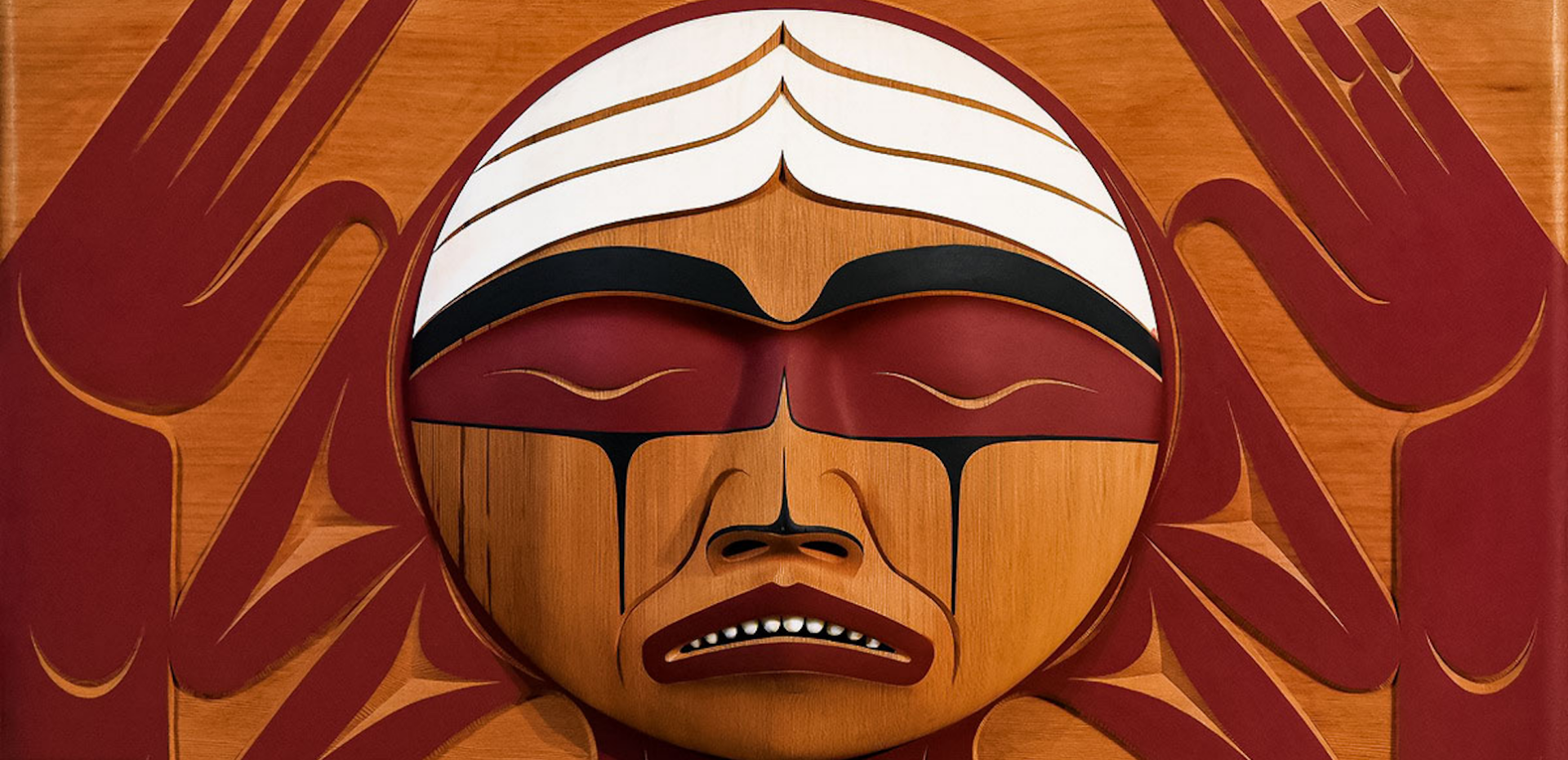Responsible Business Requires Truth and Reconciliation
June 22, 2022
Top image: Carved by Coast Salish artist Luke Marston, the Truth and Reconciliation Commission Bentwood Box is a lasting tribute to all Indian Residential School Survivors.
This is a personal perspective from an employee at B Lab, the nonprofit behind Certified B Corporations. In this series, we invite individual B Lab employees to share their experiences, inspiration, hopes, and challenges as they work toward a more inclusive and regenerative world. This edition of B Lab Voices is by Andy Fyfe, Director of Equitable Growth.
“Innovation isn’t always about creating new things. Innovation sometimes involves looking back to our old ways and bringing them forward to this new situation.” — The Honourable Murray Sinclair, former member of the Canadian Senate and First Nations lawyer who served as chairman of the Indian Residential Schools Truth and Reconciliation Commission from 2009 to 2015.
In his opening remarks at the recent B Corp Leadership Development (BLD) Canada, James Delorme humbled the couple hundred attendees and invited them with a challenge: “We are just starting to scratch the surface. We will need to get comfortable with the uncomfortable.” Former Chief of the Klahoose First Nation and now President of Indigeknow, Delorme is committed to social impact projects supporting Indigenous rights in alignment with the United Nations Declaration on the Rights of Indigenous Peoples, the Truth and Reconciliation 94 calls to action, and the BC Declaration of Indigenous Peoples Rights Act.
B Lab U.S. & Canada is committed to transforming the economy to benefit all people, communities, and the planet. And by 2025, the organization hopes to have co-led, with the community of Certified B Corporations, in scaling business practices and public policy to advance climate justice, racial equity, and a stakeholder-driven economic system. Yet B Lab U.S. & Canada acknowledges and takes responsibility for critical voices missing from the B Corp community.
Level is a program B Lab U.S. & Canada now offers to get proximate with and create intentional pathways for historically marginalized business owners wanting to certify as B Corps. Two of the companies participating this year are Indigenous women-owned businesses in Canada: Anne Mulaire and Rise Consulting. In response to businesses wondering where to start toward their repair, Adréanne Mulaire Dandeneau, of Anishinaabe/French Métis héritage and Founder of Anne Mulaire, said: “One step would be to ask yourself a couple questions. How are you responding to the Truth and Reconciliation Commission’s Calls to Action or to the United Nations Declaration on the Rights of Indigenous Peoples? How are you filling those gaps? Are you taking advantage of the local talents and knowledge?”
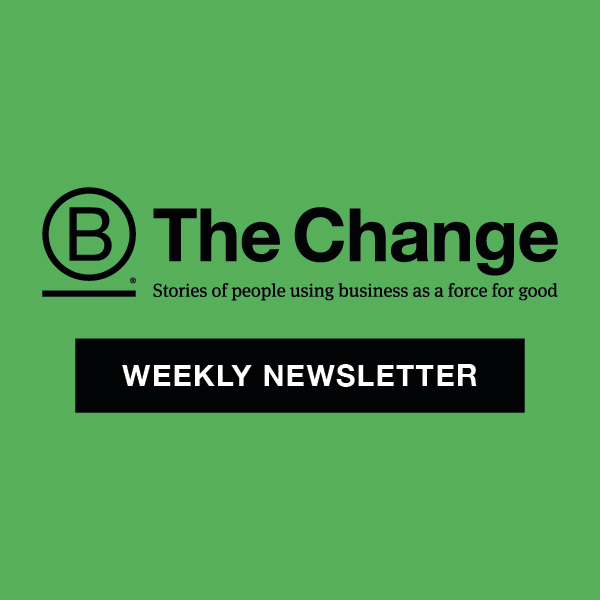
Subscribe to B The Change Weekly
Learn more about this growing movement of Certified B Corporations using business as a force for good, and sign up to receive the B The Change Weekly newsletter for more stories like this one, delivered straight to your inbox once a week.
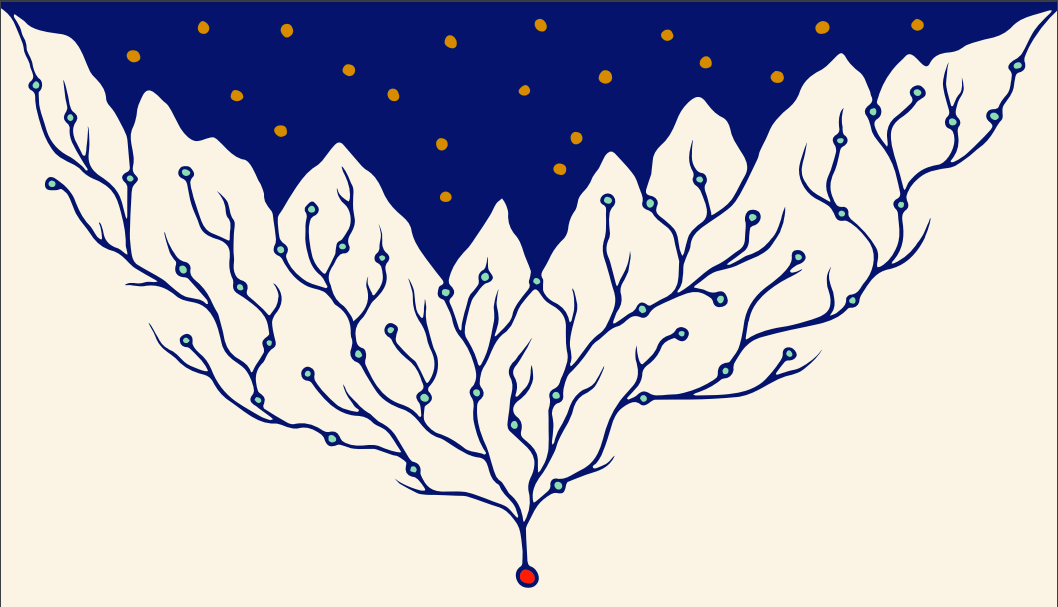
From Briteweb Reconciliation Action Plan. Artist: Mariah Meawasige, an Anishinaabekwe of Serpent River First Nation, a member of the bear clan, and is of mixed settler ancestry including Polish and Scottish.
Within the Truth and Reconciliation 94, Call to Action 92 calls for:
“The corporate sector in Canada to adopt the United Nations Declaration on the Rights of Indigenous Peoples as a reconciliation framework and to apply its principles, norms, and standards to corporate policy and core operational activities involving Indigenous peoples and their lands and resources.”
Following Delorme at BLD Canada, Rachel Segal, Managing Director at Briteweb, acknowledged that while structural change doesn’t happen overnight, reconciliation is work and they are ready to do their part. She shared the company’s Reconciliation Action Plan and the steps of their approach: research, reflection, discussion, and then formalizing. The plan follows these three tenets:
- Providing cultural awareness training for staff and contractors.
- Supporting Indigenous community development.
- Creating Indigenous employment and educational opportunities.
Now, what? “Now we progress with the plan and hold ourselves accountable throughout to track progress, understand stumbles and make space to both ensure actions are accomplished and reflection time is taken to consider and learn from this progress,” Segal said.
As Delorme called us to step into the discomfort, Segal agrees: “This work can be challenging and at times you might feel entirely upside down as deeply internalized beliefs and practices are evaluated from a different perspective that all of a sudden makes them less appealing, problematic or fully harmful. Embrace what’s uncomfortable and do what you can to help those around you feel safe as they and you navigate challenging feelings as part of unlearning deeply held colonial ways of working.”
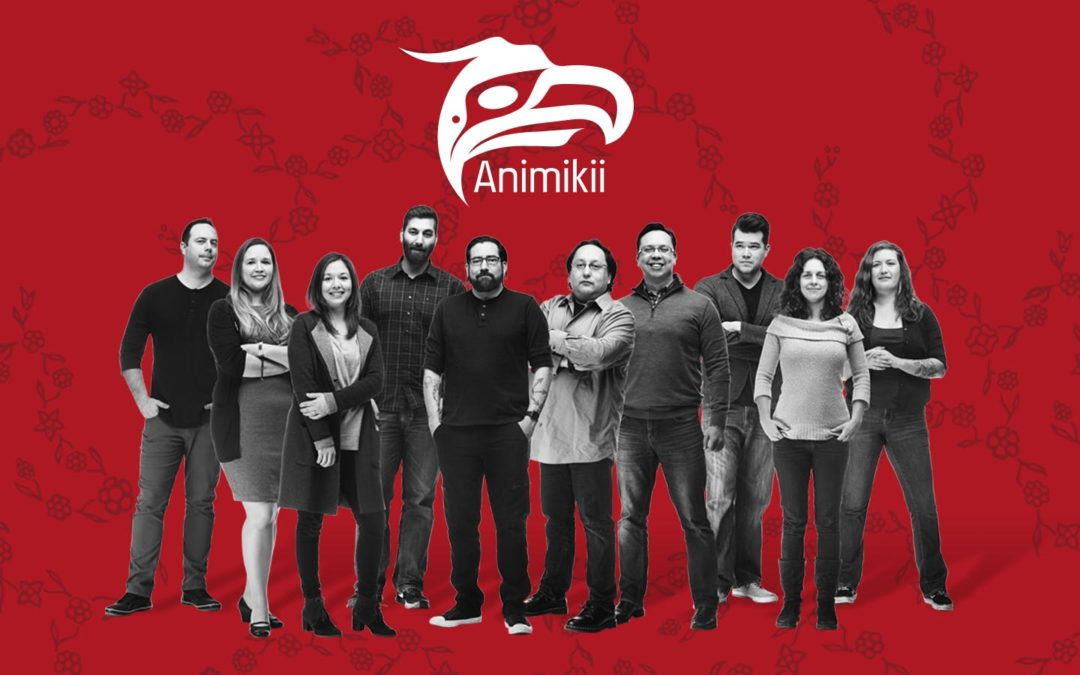
Animikii, the first Indigenous-owned Certified B Corporation in Canada.
At BLD, Ian Capstick, Chief Impact Officer at Animikii, a long time B Corp Aborignal business, reminded people in the audience to ask: “How do I know this story? Where did I learn this? Are there other perspectives?”
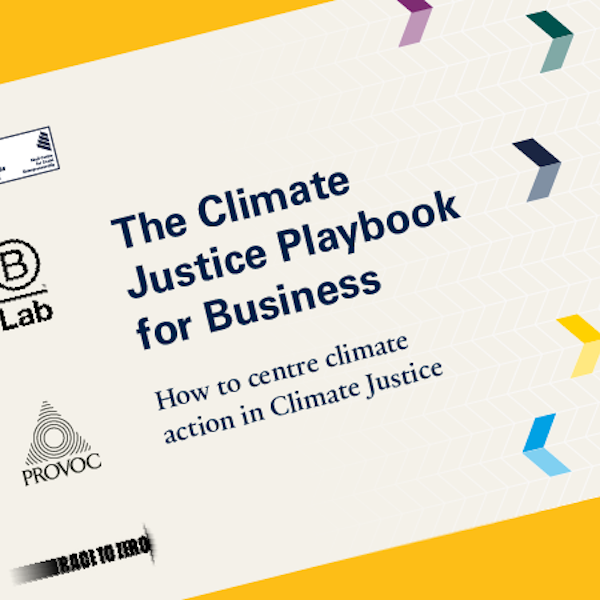
The Climate Justice Playbook for Business
This practical guide from B Lab features information to help business leaders understand the intersection of climate action and social justice and advance a justice-centered approach to climate action.
Learning True Meaning and Acting to End Extraction
His questions prompted me to reflect on the term “Indian giver,” which has taken on a translation so far opposite from origin that it’s now an antonym of slander. When I learned the phrase, it was passed to me as meaning: Someone who gives you a gift and selfishly expects it returned at some point. Sitting in front of me last week holding the start of a basket woven with kudzu as I looked on attempting to weave my own, Nancy, an Eastern Band Cherokee elder, shared how it shifted. “Sometimes gifts are acts of ceremony, meant to continue in exchange. Those who taught you what ‘Indian giver’ means are those who stopped the gift in its circle [and] expected it to now be theirs to keep.”
In his book The Gift, Lewis Hyde challenges the meaning of Indian giver: “a person whose instinct is to remove property from circulation, to put it in a warehouse or museum (or, more to the point for capitalism, to lay it aside to be used for production).”
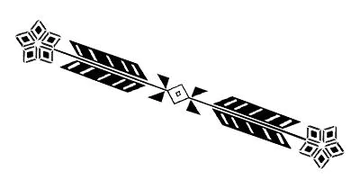
Métis Artist David Albert created this arrow (Flèche) to pay tribute to the trading activities between the Métis and First Nations people. Photo courtesy Anne Mulaire
What we may have been given, is not to be kept. But if it is kept, can we put something of shared value back in the circle? Much of what has been extracted from the land across what is now called Canada and the United States has been kept and commercialized for three centuries. What was laid out in its original form and seen as a gift quickly turned to treasure and commodity. We continue to witness it today.
Building Strong Indigenous Businesses That Change Narratives
There are twice as many First Nations and Inuit women-identifying entrepreneurs starting businesses in Canada compared to non-identifying Indigenous women-identifying peers. On top of that, 18% of young (under 35) Indigenous Americans are business owners — 4% higher than the average. Yet the current system unfairly demands that Indigenous-owned businesses be more qualified than their white peers to access the same resources. Consider the fact that 1.86% of venture capital goes to First Nations and Inuit founders in Canada. To help, the Women Entrepreneurship Knowledge Hub in its recent report “Resources for Indigenous Women Entrepreneurs” researched 136 unique programs that provide resources to Indigenous entrepreneurs across Canada. It called for “More patient, comprehensive, and relationship-based practices that employ an intersectional lens can lead to a greater understanding of the unique needs of Indigenous women, which in turn better allows Indigenous women to build on their strengths.”
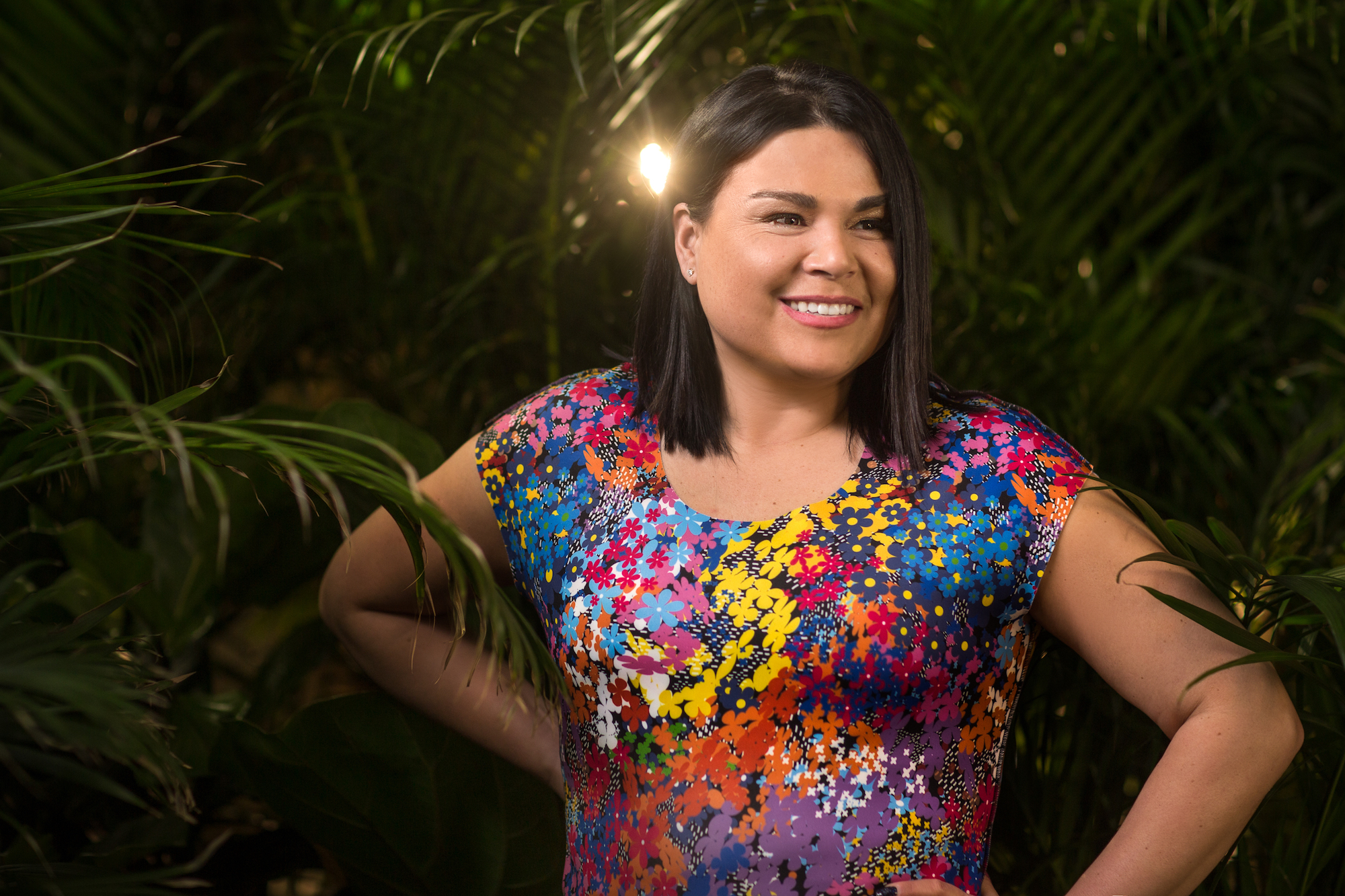
Jenn Harper of Cheekbone Beauty. (Photo courtesy Cheekbone Beauty)
One of the newest B Corps is Jenn Harper’s company, Cheekbone Beauty, which is Indigenous and woman-owned and founded. Harper closed the BLD Canada event by opening a new circle for attendees to encounter. For her, this work is personal. Before Cheekbone Beauty, she was selling seafood until she saw the power of intergenerational wealth in the form of education. She asked herself: “How can I create a product and support my Indigenous community? How can I learn from my own healing and offer that through gift? With the released report of those who worked in the schools who acknowledged the systemic plan to eradicate Indigenous peoples, how can I, through my trauma and now through my business, change this narrative?” Through the company’s success, Cheekbone Beauty changes the lives of Indigenous youth by making donations to address the educational funding gap and creating a space in the beauty industry where Indigenous youth feel represented and seen.
“When I founded Cheekbone Beauty, one of the things that was very important to me was to give back to the community and create intergenerational prosperity through education opportunities for Indigenous youth. We were able to realize part of this goal last year with our first Cheekbone Beauty partial scholarship, a program we’re hoping to expand this year.” — Jenn Harper, CEO, Cheekbone Beauty
May these individuals and their businesses not only inspire hearts, but also inspire action for you in your life, your community, and your work. Can we move — from acknowledgement toward relationship — with the hope that one day, we can repair and reconcile?
As Harper reminds us: “The biggest thing is to support Indigenous-owned businesses year-round, not just when the calendar has an Indigenous awareness day or month. Like any business, sustainability comes from year-round support from customers, media, and the business community.”
Information and Resources
- In honor of Indigenous History Month, The Gord Downie & Chanie Wenjack Fund presents a celebration of the diversity of Indigenous Peoples across Canada. Tune in June 29 by registering here.
- Continue the conversation at the next BLD | Canada on September 22. Register here.
Thank you to the organizing committee behind this year’s BLD | Canada:
- Kristy O’Leary, Decade Impact
- Michelle Reid, B Lab U.S. & Canada; BDC
- Katie Allen, Zest Solutions
- Lisa Hrabluk, Wicked Ideas
- Greg Tooke, Light Trail
Andy Fyfe resides in Weaverville, North Carolina, the Qualla Boundary, ancestral land of the Anigiduwagi, now referred to as the Eastern Band Cherokee. This land was acquired through violence, oppression, coercion, and broken treaties. Beyond land acknowledgment, he asks you to spend time with a digital story of the history of these people here: As Long as the Grass Shall Grow. Andy Fyfe and Cee Stanley from Green Heffa Farms in partnership with Decade Impact, Impact Growth Partners, and Cultivating Capital have created a program called Level which supports Black, Indigenous, and Women of Color business owners across Canada and the United States in their pursuit of B Corp Certification while co-learning and co-creating along the way.
-
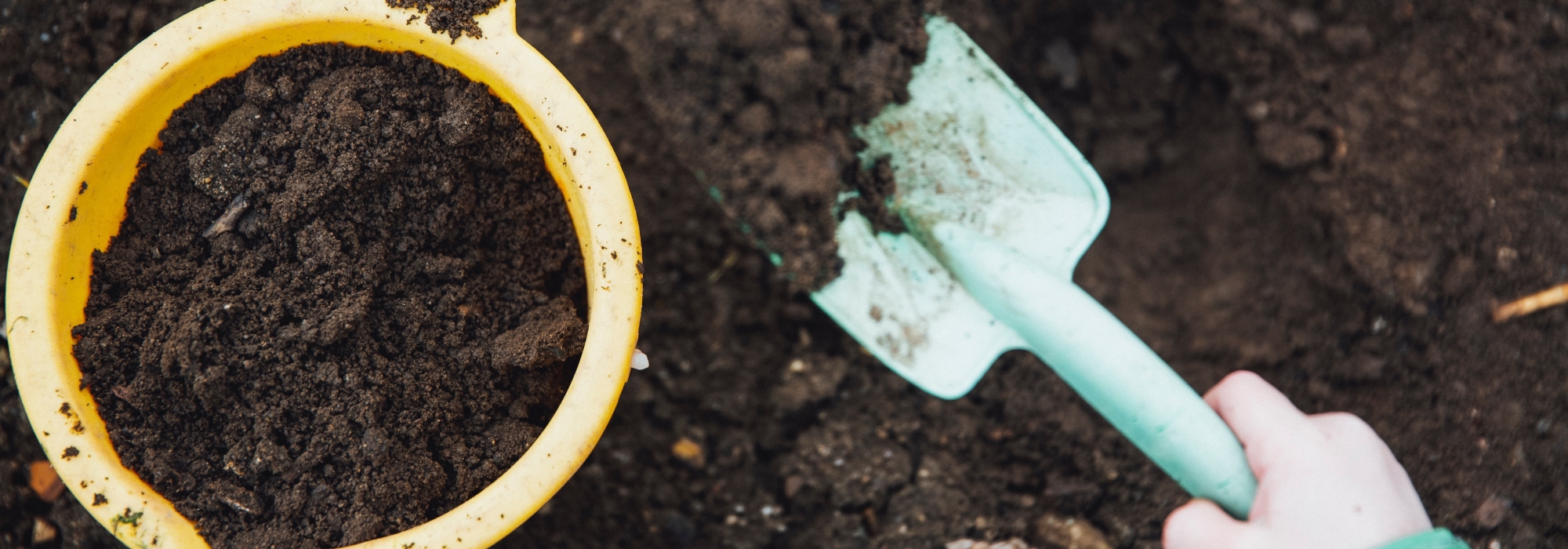
Business Strategy
10 Regenerative Products and Services from B Corps: An Earth Month Guide
Read More -

Business Strategy
‘All Hands on Deck’: By Developing Sustainable Packaging and Supply Chains, B Corps ReCIRC and Numi Tea Prioritize People and Planet
Read More -
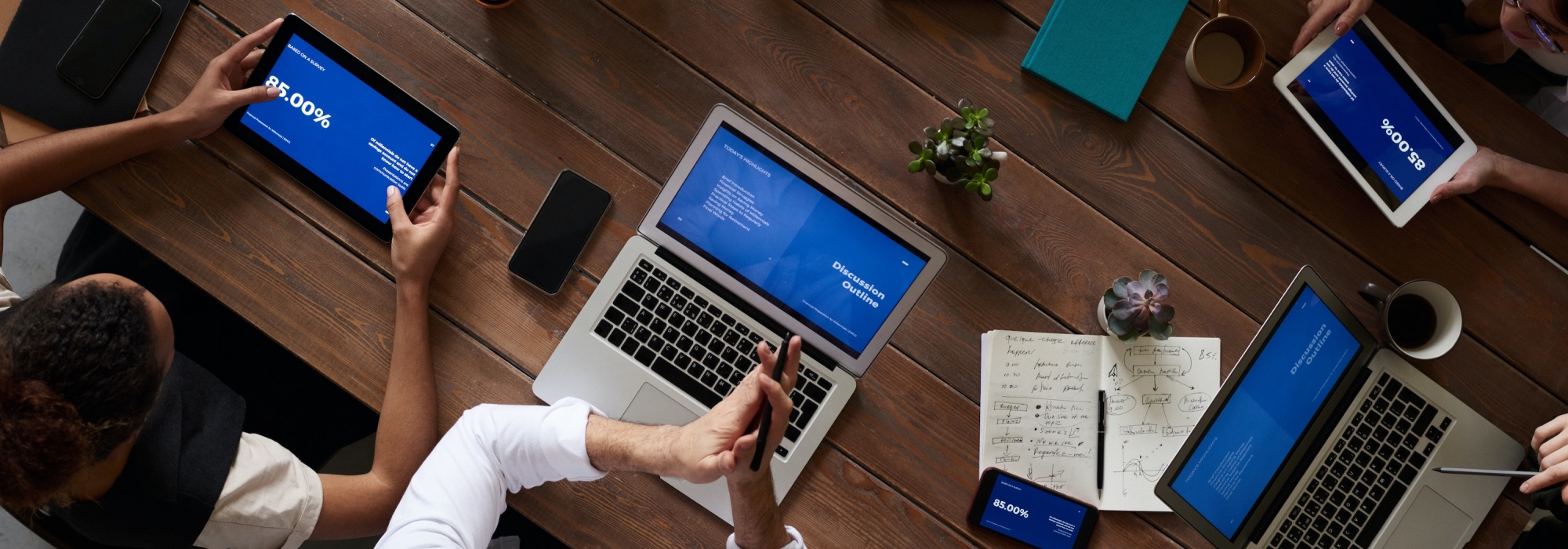
-
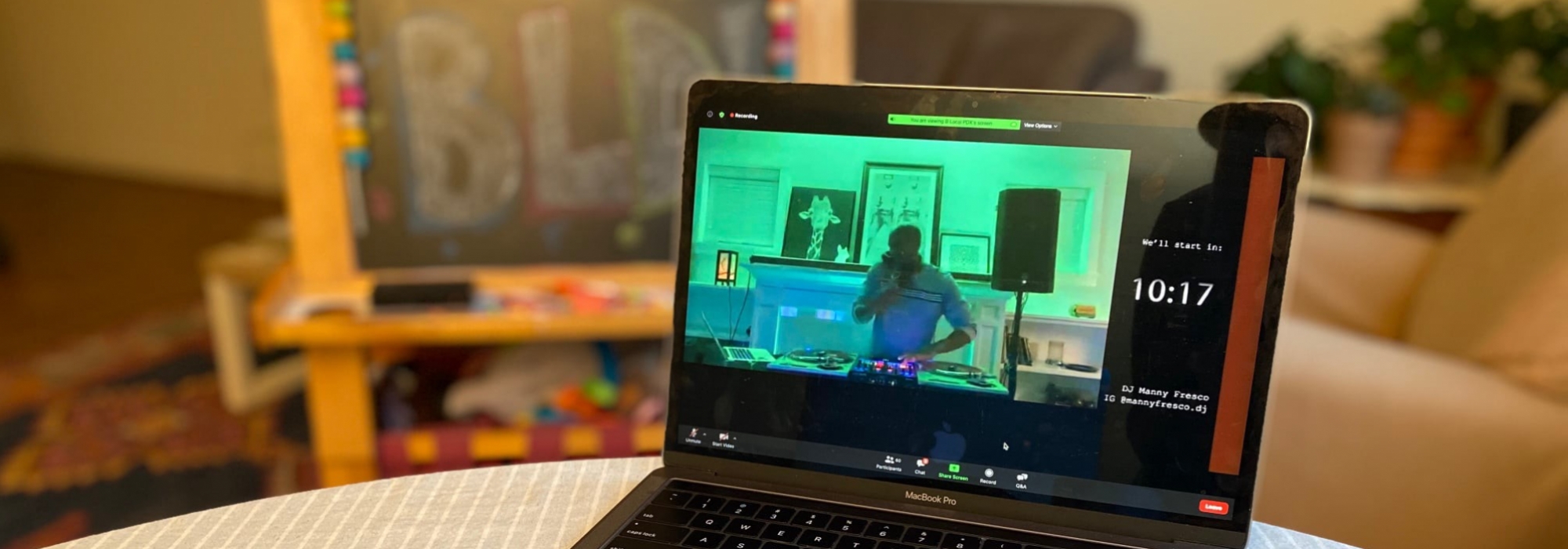
Business Strategy
B Locals Maintain Focus on Building a Better Business Community During the Challenges of 2020
Read More
Sign Up for our B The Change Newsletter
Read stories on the B Corp Movement and people using business as a force for good. The B The Change Newsletter is sent weekly.
